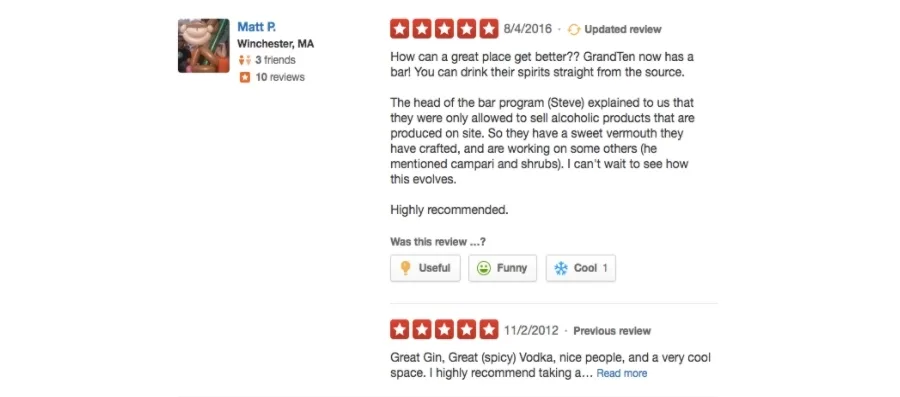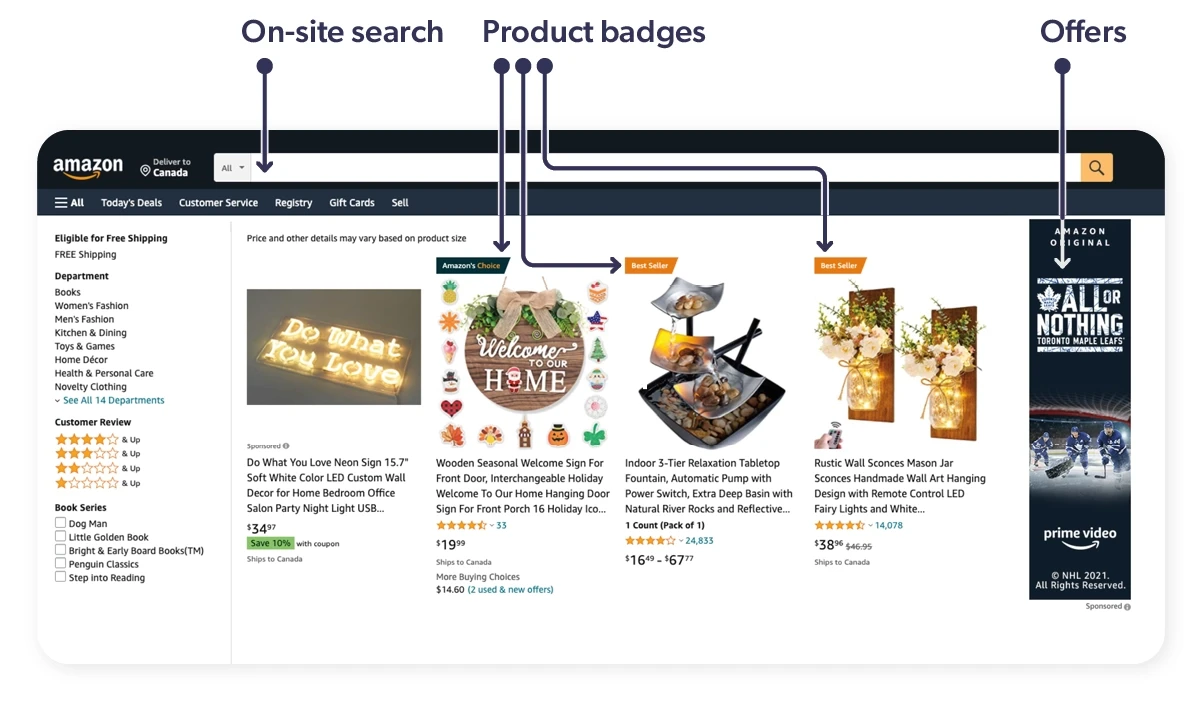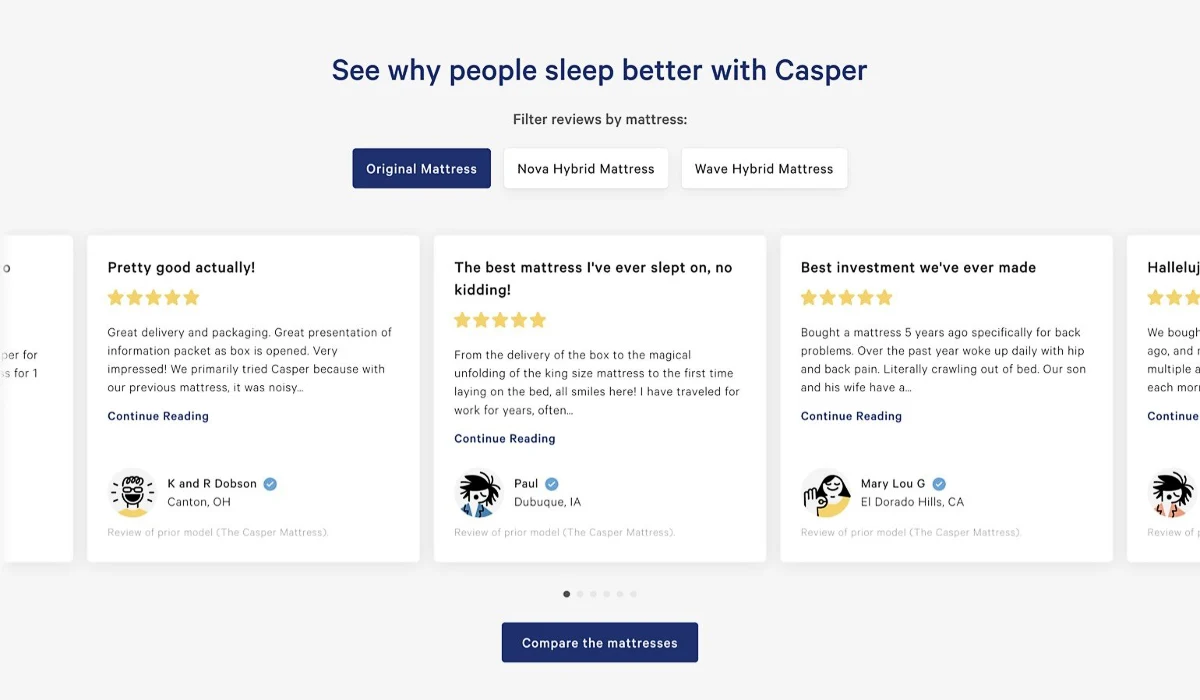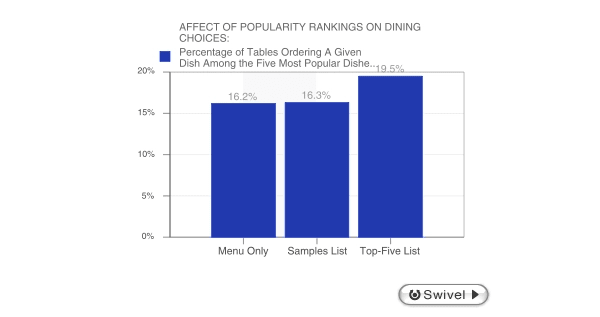Social proof is informational social influence. It’s a psychological and social phenomenon powered by the ‘wisdom of the crowd’.
When was the last time you bought something without reading a product review or at least glancing at the star rating?
If neither of those influenced your last purchasing decision, maybe you were recommended the product by a good friend or someone on social media. These external social cues that help us make decisions are what most people now know as social proof — a term for a psychological and social phenomenon coined by psychologist Dr. Robert Cialdini in his book, Influence.
It’s especially popular in marketing, as marketers all over the world deploy social proofing to increase prospective customers’ trust — and conversions. How do you get a customer who’s new to your brand to trust your product or service enough to give you their hard-earned money without ever having tried it?
By showcasing the success story from happy customers who love your product!
What Is Social Proof In Marketing – With Examples
Social proof is informational social influence. Or, put more simply, when a person copies the actions of others simply because others are already doing those actions. It’s a concept related to human behavior in general, but for obvious reasons, it’s become popular in business.
What Are The Different Types of Social Proof?
You can find the most popular forms of social proof all over company websites.
User Social Proof
Customer reviews and product ratings help potential customers understand existing customers’ positive experiences to help them make decisions. In fact, the average customer reads 10 online reviews before making a purchase.

A customer review like the one above is considered user social proof because an established user of the product or service is providing proof of their own positive experience for any interested potential customer. A positive review from a satisfied customer goes a long way. Now, a negative review can also act as social proof, but it’s not the kind of positive social proof that usually helps sell products or services. This is a very common social proof example, however, there are many other forms of social proof as well.
Credibility Social Proof:
“As seen in” sections gives social credibility to someone or something by including media mentions or special features. (Think, ‘if that moisturizer was good enough to be in Vogue, it’s certainly good enough to be in my skincare routine!’ or ‘if Dell, MAC Cosmetics, and Toyota are all using AI, there must be something to it.’)

Celebrity Endorsement or Expert Social Proof
Celebrity social proof or expert social proof (also sometimes referred to as influencer marketing)— is when a product or service gets an endorsement or testimonial from a celebrity, a well-known industry expert, or social media influencer with hundreds of thousands of followers which helps build authority for a brand or a particular offering. (Think, ‘if Tom Brady wears these shoes, they must be worth the money!’). This can be in the form of a social media post, a quote from an expert on the product page, an online review, or a video testimonial. If a notable figure or expert in the industry endorses a product, it builds merit, and potential customers are more likely to trust it.
Product Badging
Social proof is one of many tactics marketers can implement when customizing results for customers, also known aspersonalization. This can come in the form of product badges or labels on a category or product page.
They highlight a product attribute relevant to that particular shopper, or emphasize popularity within a group or location.

When paired with other tactics such as a cart abandonment recovery email, shoppers receive a personalized reminder about items they’d added to their cart.
This could look something like: the earrings you added to your cart are trending in New York, but inventory is low. Click here to complete your purchase.
Not only does this deliver a personalized experience for the customer, but it also taps into the concept of social proof by identifying how similar shoppers are interacting with the product. If the earrings are trending in your city, you might be more likely to jump on that trend while you can.
Social Proof in Every-Day Life
The non-marketing forms of social proof that affect the way we behave on a daily basis are less obvious. If a new Italian restaurant opens down the street and there is a long line and two-hour wait every time you try to get a table, you’re bound to think the food is impeccable; it’s popular, so it must be good.
Trends do the same thing. For example, if you suddenly notice a lot of people wearing a certain style of Nike shoes, you may assume they are the new hot thing.
The most important thing when identifying different types of social proof is understanding that it always comes from third-party influence.
It’s not a claim from the actual business or establishment under consideration (even if they’re the ones to publish it), but external proof about it. In nature, social proof is an external party and that is why it works so well.
Let’s dive in deeper.
How Does Social Proof Actually Work?
Robert Cialdini’s explanation of why social proof is so effective is that we can’t look inside ourselves to determine the certainty of a product, establishment, service provider, etc. — as much as we’d like to be able to do so.
If we want to know if something is good before we test it out, we have to look to others who have gone before us.
When we see that someone else’s experience with something we are considering was good, it reduces uncertainty and offers a “shortcut” for our brains in determining if the choice is, in fact, “good for me.”
Essentially, when something is popular, and we see a lot of people doing it and rating it positively, our brains don’t have to work as hard to weigh the pros and cons. This proof reduces uncertainty to increase trust in whatever it is we see other people doing. It sends us a trust signal as we consider our options, and helps us make a more informed decision. Our brains love shortcuts, so when we are offered them in the form of social proof, we often respond positively.
This concept is what Cialdini calls “wisdom of the crowd.” (Which is, coincidentally, also how our ML models get smarter for your audience: learn more about behavioral data.) The more people who like something, the more likely we are to trust it because of its popularity.
Social proof can also increase our perception of the feasibility of an action. For example, Cialdini talks about his time working for an energy company and how they used social proof to get people to use less energy in their homes.
They sent memos to their customers about the lower amounts of energy their neighbors were using in a certain time period, and as expected, their higher-usage customers began to use less too simply because they saw that it was possible for others to do so: “if my neighbor can use only that much energy, surely I can too.”
This kind of social influence can also work negatively.
If we see someone had a bad experience with something we are considering – like a product that has a lot of 1-2 star ratings and nasty reviews – our trust in that thing diminishes.
But negative social proof obviously isn’t something most want to use as a social proof marketing strategy.
Why Does Social Proof Happen?
The Power of Similarity
Another aspect of social proof is similarity. If another person is similar to us in some way — if they are business owners like us, if they have a family like we do, or if they struggle with the same problems — the easier it is to relate to the person providing the social proof.
It increases our sense of trust that the choice in question will be good for us since it was good for someone like us.

For example, if you’re considering a project management software for your digital marketing agency, and you see on the homepage of the website that another similar, competing marketing agency, uses that software, you’re likely to believe it will work well for you too because you both have similar business goals and a similar audience.
Cross-Cultural Reach of Social Proof
Social proof’s credibility is found around the world. There’s a cross-cultural element to it that speaks to how strongly it’s ingrained in human nature.
Despite geography, people seem to react the same to the reassurance of proof from others. A study done in Beijing, China, showed a 13% increase in orders of a dish at a restaurant if it was labeled as being among the ‘most popular’ at the restaurant.
Among the vast options available on the menu, the participants chose one of the most popular dishes which eliminated a level of uncertainty around whether or not it would be good.

Not only does the concept of popularity make its way into our everyday lives, but it’s also at work in marketing efforts around the world, and you likely encounter it every time you shop online.
On most ecommerce websites, you’ll see “best seller” or “trending” labels on items, typically on the front page. Popular items have “a proven track record” that helps them gain popularity with, specifically, new customers.
Think about it: if you were comparing two different items from a brand you hadn’t purchased from before and one was marked as a “best seller,” which would you be included to choose? Which would you trust more?
Why Is Social Proof Important?
Simple. Because it helps you build customer trust. Customers buy more – and buy more often – from brands they trust. Having a customer’s trust is extremely valuable for any business — 82% of consumers say they will repeatedly buy from a brand they trust over another brand. Not only that, but in the same survey, 76% of people said they are quick to recommend these trusted brands.
So, customer trust can quickly lead to loyalty, loyalty to advocacy, and that advocacy works as social proof for other potential customers. It’s a cycle where the lynchpin is social proof.
Used effectively, social proof provides upfront reassurance for customer doubts and uncertainties. Those nagging questions about whether or not they should purchase something are drowned out as they see other people reacting positively to it. Seeing social proof, especially during an online shopping experience, can oftentimes oftentimes be the thing that gets people to click ‘purchase’. People simply want to know if what they are about to buy is going to work from them, and what better way to show them than by letting other satisfied customers do the talking.
But, is there such a thing as too much social proof? Absolutely.
The whole point is to instill trust in customers that causes them to take action, and when there is too much social proof, even if it’s all valid, things can start to look suspicious.
Recent data shows that too many 5-star product reviews can actually steer people away from purchasing something. Why? People assume the customer reviews are fake if there are too many.
Trust is built when there is an accurate and full picture of other customers’ experiences. Three and four star reviews can help give a more well-rounded picture of a customers actual experience, so it’s important not to filter them out completely. You want to build trust with customers based on honesty. So, when it comes to deciding how much 5-star, positive social proof to use on a website or advertisement, be careful not to overdo it.
How Does Social Proof Impact Customer Experience?
Social proof is a fascinating reflection of the power of social psychology and how our actions are influenced by the actions of others. This knowledge opens up a lot of possibilities for how you can use social proof to your advantage.
You can implement social proof in a variety of ways to build trust with customers, and if you do it well, you can see great results like higher sales, customer loyalty, and fans who advocate for your brand. The key is figuring out what kind of social proof will work best for your business – social media influencers, customer reviews, customer testimonials, ratings, brand ambassadors, etc.
Testing different forms of social proof and tracking sales and customer engagement along with it can help you narrow down the types that your customers react to the best to develop your social proof strategy.
Using Social Proof Ethically
As with any influence, the power of social proof means toeing the ethical line when it comes to using it to influence customer behavior. Using it to instill trust based on actual customer experiences is a great way to establish strong relationships with customers.
But there is such a thing as fake social proof. Tempting though it may be to fake it if you don’t have a lot of natural social proof, that’s not a road you want to go down.
Why? Well, besides the fact that some are technically illegal, fake social proof compromises your ability to build trust with customers. Not only are customers skeptical of too much positive social proof, but more than half of customers wouldn’t buy from a company again if they suspect customer testimonials or product reviews are faked.
Using social proof unethically simply isn’t worth the risk of losing the credibility of your business.
Dig Deeper
Looking for ways to improve conversions on your website? There are a number of reasons why customers leave without making a purchase. One of the biggest is hurdles in the product discovery process.
Learn more on how to create a seamless customer experience on your ecommerce site in our ebook, Product Discovery: The Real Reason Your Visitors Bounce.


